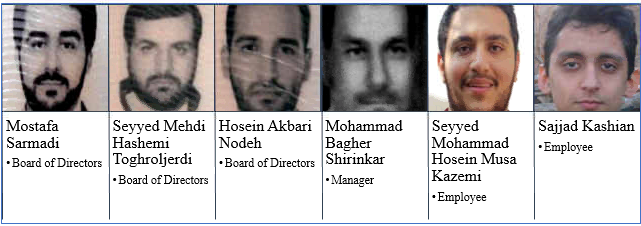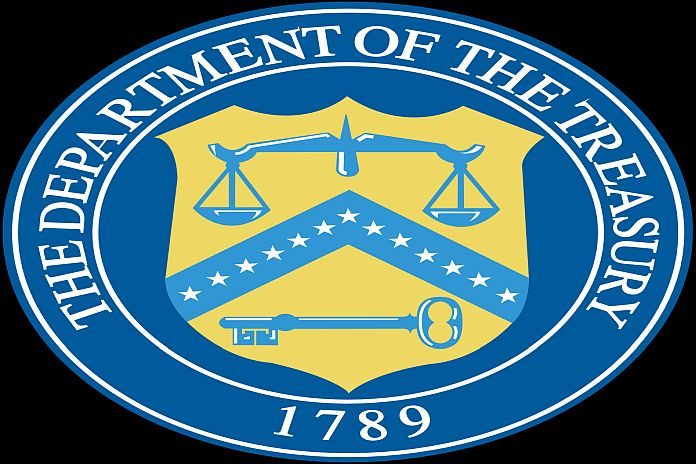WASHINGTON, USA — On Thursday, US Department of the Treasury’s Office of Foreign Assets Control (OFAC) designated six Iranian individuals and one Iranian entity pursuant to Executive Order (E.O.) 13848, “Imposing Certain Sanctions in the Event of Foreign Interference in a United States Election,” for attempting to influence the 2020 US presidential election.
The United States identified attempted cyber-enabled intrusions by state-sponsored actors, including Iranian actors who sought to sow discord and undermine voters’ faith in the US electoral process. The actors also disseminated disinformation on social media and sent threatening emails as well as a fraudulent video. The fake video was made in an attempt to undermine faith in the election by implying that individuals could cast fraudulent ballots.
“Treasury will continue to counter efforts to undermine the integrity of our election systems,” said Deputy Secretary of the Treasury Wally Adeyemo. “Today’s action underscores the US government’s commitment to hold state-sponsored actors accountable for attempting to undermine public confidence in the electoral process and US institutions.”
Iran’s efforts to influence US elections
Between approximately August 2020 and November 2020, state-sponsored Iranian cyber actors executed an online operation to intimidate and influence American voters, and to undermine voter confidence and sow discord, in connection with the 2020 US presidential election. These Iranian actors obtained or attempted to obtain US voter information from US state election websites, sent threatening emails to intimidate voters, and crafted and disseminated disinformation pertaining to the election and election security. Furthermore, the Iranians illicitly accessed content management accounts of several online US media entities, which resulted in their ability to edit and create fraudulent content. However, the actors’ ability to leverage this unauthorized access was ultimately thwarted by the Federal Bureau of Investigation (FBI).
Leading this attempted election influence campaign was Iranian cyber company Emennet Pasargad. Emennet was previously designated under its former name, Net Peygard Samavat Company, pursuant to E.O. 13606 in February 2019, for having materially assisted, sponsored, or provided financial, material, or technological support for, or goods or services to or in support of, the Islamic Revolutionary Guard Corps-Electronic Warfare and Cyber Defense Organization (IRGC-EWCD). The company rebranded itself to evade U.S. sanctions and continue its disruptive cyber operations against the United States. Emmenet is being designated pursuant to E.O. 13848 for attempting to influence the 2020 US presidential election.
Emennet is managed by Iranian national Mohammad Bagher Shirinkar (Shirinkar), whom OFAC previously designated pursuant to E.O. 13606 in February 2019 for having materially assisted the IRGC-EWCD. Shirinkar is being re-designated pursuant to E.O. 13848 for attempting to influence the 2020 U.S. presidential election.
As part of today’s action, OFAC is also designating five additional Iranian nationals who are part of Emennet’s network. Emennet employees Seyyed Mohammad Hosein Musa Kazemi (Kazemi) and Sajjad Kashian (Kashian) are being designated pursuant to E.O. 13848 for attempting to influence the 2020 US presidential election. Kazemi and Kashian executed cyber-enabled operations as part of the campaign to influence the election. Mostafa Sarmadi, Seyyed Mehdi Hashemi Toghroljerdi, and Hosein Akbari Nodeh, who serve on Emennet’s Board of Directors, are being designated pursuant to E.O. 13848 for acting, or purporting to act, for on behalf of Emennet.
Emennet Employees Designated Pursuant to E.O. 13848

Today’s designations represent the collective efforts of Treasury, the US Department of State, and the FBI. Concurrent with today’s designations, the U.S. Department of Justice unsealed a five-count indictment against Seyyed Mohammad Hosein Musa Kazemi and Sajjad Kashian. Further, pursuant to the Rewards for Justice Program, the State Department is offering a reward of up to $10 million for information on or about the activities of these two individuals.
Sanctions implications
As a result of today’s designation, all property and interests in property of the designated targets that are subject to US jurisdiction are blocked, and US persons are generally prohibited from engaging in transactions with them. Additionally, any entities 50 percent or more owned by one or more designated persons are also blocked. In addition, financial institutions and other persons that engage in certain transactions or activities with the sanctioned entity and individuals may expose themselves to sanctions or be subject to an enforcement action.





